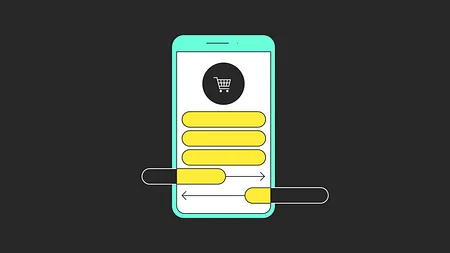11 Biggest Fintech Stories of Q2 2018
There’s a sweltering heat wave hitting the city and I’ve never been so thankful for the office air conditioning. We’ve just entered July, everyone’s moving onto their Q3 targets and writing reports on Q2.
So what happened in Q2 for the fintech world? And where are we about to go for Q3? I take a look at the 11 biggest stories that happened in fintech over the last three months.
11) Santander Stands Alone
It was the lead story in our Loot to Hoot news podcast, with so much discussion it got a blog post all of its own. Santander managed to bid for a slice of the £833 million stumped up by RBS to encourage business banking. SMEs are still incredibly underserved in the financial market, so despite the controversy around Santander’s bid, at least there’s a big name getting interested. Santander’s new digital offering may prove a challenge to Monzo and Starling but with the strides those two neobanks have been making recently it may not be for a while.
10) iZettle Settled
iZettle was planning to raise around $230 million on the Nasdaq Stockholm stock exchange with potential to be valued at $1.1 billion. It would have been the biggest fintech IPO ever in the area. Unfortunately, iZettle appeared to cave under the pressure following the error Square made during its IPO. There were initial thoughts that iZettle’s IPO would herald the first of many European fintech IPOs. Unfortunately, that was not to be the case. iZettle were bought out by Paypal, admittedly for double its potential value. It still remains to be seen if this attitude permeates throughout the rest of European fintechs.
9) 11:FS Pulse 2.0 Launched
We launched the new and shiniest version of 11:FS Pulse! Probably the biggest development in fintech research ever, it surfaces end-to-end user journeys for your developer team. So instead of spending £50K and 6 months on development to get a small assortment of user journeys, you can save time and money by just using 11:FS Pulse. You can get an idea of just a few of the brilliant minds behind 11:FS Pulse when they did a takeover episode of the Fintech Insider news show.
8) Insta-Pay
Facebook-owned Instagram made a stealth launch on a native payments system. Some users are already able to buy what they want the moment they see it. If and when it rolls out across the board, users will be able to click to buy items seamlessly. Instagram has 25 million business profiles, that’s a lot of shops. With such intense purchasing power available to consumers Instagram might rival Amazon in retail someday.
7) Revolunicorn
Sadly not a term we coined, but it’s too good not to use. Revolut hit unicorn, Revolunicorn, status this quarter, making it the fifth European fintech unicorn. More unicorns is only a good thing for the European fintech scene. The more an area has the more successful they’re seen to be. If nothing else, Revolut’s success is a sign of growing interest in the European fintech market.
6) UK Fintech Supported by European Workers
Innovate Finance released their illuminating report into UK fintech workers, which we commented on back at the start of May. Only 29% of companies believe their business would exist in its current state without EEA workers. There are a lot of similar numbers in the report, which all boil down to Brexit having a negative effect on UK fintech. With there still being no real direction from the government on what Brexit will mean for business, these numbers are the only solid ground to make any guesses from for the industry.
5) TSB Core Launch
TSB made headlines across the country throughout the quarter. Starting in April, TSB's Mass data migration to a new core system didn’t go to plan, and the fallout from this will continue to follow the bank into the next quarter. While there may be a negative impact for TSB for now, there’s no reason to think that they can’t recover from it in the future. Especially now that they have a shiny new core system. It may however, give other banks reason to pause before switching from legacy.
4) Visa Stepped Out
Visa suffered from a surprising loss of service at the start of June. We discussed this at our live Money20/20 Europe podcast. Visa were quick to apologise and rectify the issue, but customers were still left in a painful situation. It just goes to show that tech problems only tend to go mainstream when it involves financial services.
2) Starling Joint Accounts and Monzo’s IFTTT
Not wanting to further the neobank arms race I opted to put these two stories in equal positions and skip out on third place. Here at 11:FS we landed a great exclusive video with Starling on their new joint accounts and with Monzo on their new IFTTT function. Starling launched a feature their users have wanted for a while in hopes to bring them over fully to the digital bank. It took a while to bring to life for Starling, figuring out KYC elements in a seamless way isn’t as easy as you’d think. But now customers can set up a joint account in the comfort of their homes without having to struggle for an in-branch appointment that fits their schedule. Monzo’s IFTTT caused a buzz around our offices and probably around yours too. You can see how it all plays out in the video below. But the capability to transform banking into an intelligent reactive service may finally be here. Limited only by your imagination, Monzo customers can utilise their money to react to their lives in ways that were never possible before.
1) Foodie Fintech in a Flat
What else could be the biggest story of the quarter? If not the year! Forget the tech, forget the finance. It’s all about the food. Foodie Fintech in a Flat brought you some of the most unguarded insights into the fintech scene in the USA. And we also got you the greatest taco and chilli recipes known to the industry. I also have it on good authority that fintech in a flat will be returning soon. Possibly around After Dark VI. Speaking of, don’t forget to get your tickets for the best After Dark yet.
Future Focus
So what does this all mean for the future? Digital banking is done stretching its legs and is finally starting to deliver some truly impressive products. Banking is now able to be integrated everywhere and results in an end-to-end service that’s never been done before.
Banking hasn’t been disrupted, it’s been distributed - David M. Brear, CEO 11:FSSmart banking might mean customers are no longer worrying about finances on a daily basis and can develop peace of mind. It appears as though banking is on the cusp of moving to a place where value is found in the service instead of the product. Disagree with the list? Great, let us know the most important stories that we missed @11FSteam and on Fintech Insider News. If you agree, that’s even better, show us some love on Twitter instead.


